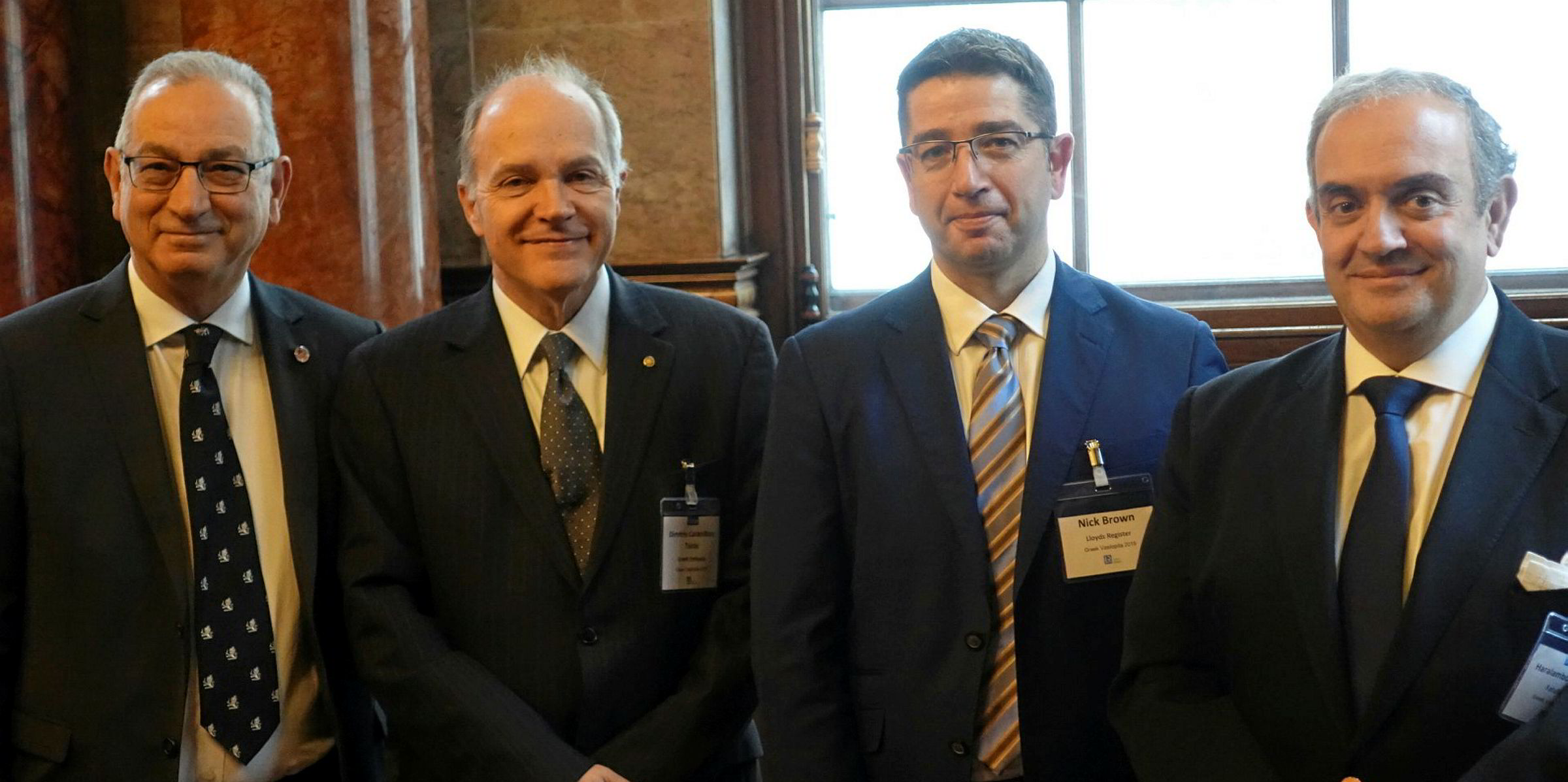All players in the bunker fuel supply chain need to work together in coming months to make sure new low-sulphur fuels do not cause accidents or pollution, according to a leading voice in London’s Greek shipping community.
Haralambos ‘Harry’ Fafalios urged the IMO to bring together everyone from oil companies, equipment makers and classification societies to guarantee fuels created to comply with new environmental rules do not damage engines and cause accidents.
The chairman of the Greek Shipping Co-operation Committee said the need for an adequate supply of good quality fuel was more fundamental than other issues such as whether to fit exhaust scrubbers.
“We strongly urge the IMO to bring together the main stakeholders in this area – oil companies, bunker suppliers, main engine manufactures and class – to guarantee that the new fuel will be fit for purpose,” he said.
Fafalios was speaking at the committee’s annual gathering at the Baltic Exchange to celebrate the New Year with the cutting of a traditional Greek vasilopita cake, with a blessing by Archbishop Gregorios, and in the presence of IMO secretary-general Kitack Lim.
From January 2020 ships must burn fuel with only 0.5% sulphur or fit scrubbers to clean engine exhaust.
Refiners and bunker suppliers have been scrambling to start refining cleaner fuel or reformulate fuel blends, leading to concerns about quality and supply.
Last week, Lloyd’s Register said that its testing of new fuel blends had shown positive results with samples meeting specified formulations.
“The main area of discussion has been 2020 and the scrubber debate. Does one fit them or not?” Fafalios said. Their value depended on the cargo sector and vessel size.
“What is most important in this debate is much more fundamental,” he said.
“By 2020 how much low sulphur fuel will be available and is it compatible with today’s marine propulsion systems, and will changeover take place with the least possible damage to engines, ships and the environment in case of ships being disabled due to incompatible fuels?”
Fafalios urged the government of Greece to invest more in maritime education and backed to London’s aim to remain a leading centre after the UK leaves the European Union.
“With regard to the UK it is difficult to forecast how the Brexit issues will resolve itself, but most of all we greatly support London’s quest to remain the epicentre of the world’s shipping industry,” he said.
Failure of the US and China to resolve their trade dispute could bring “great disruption to both economies”.





